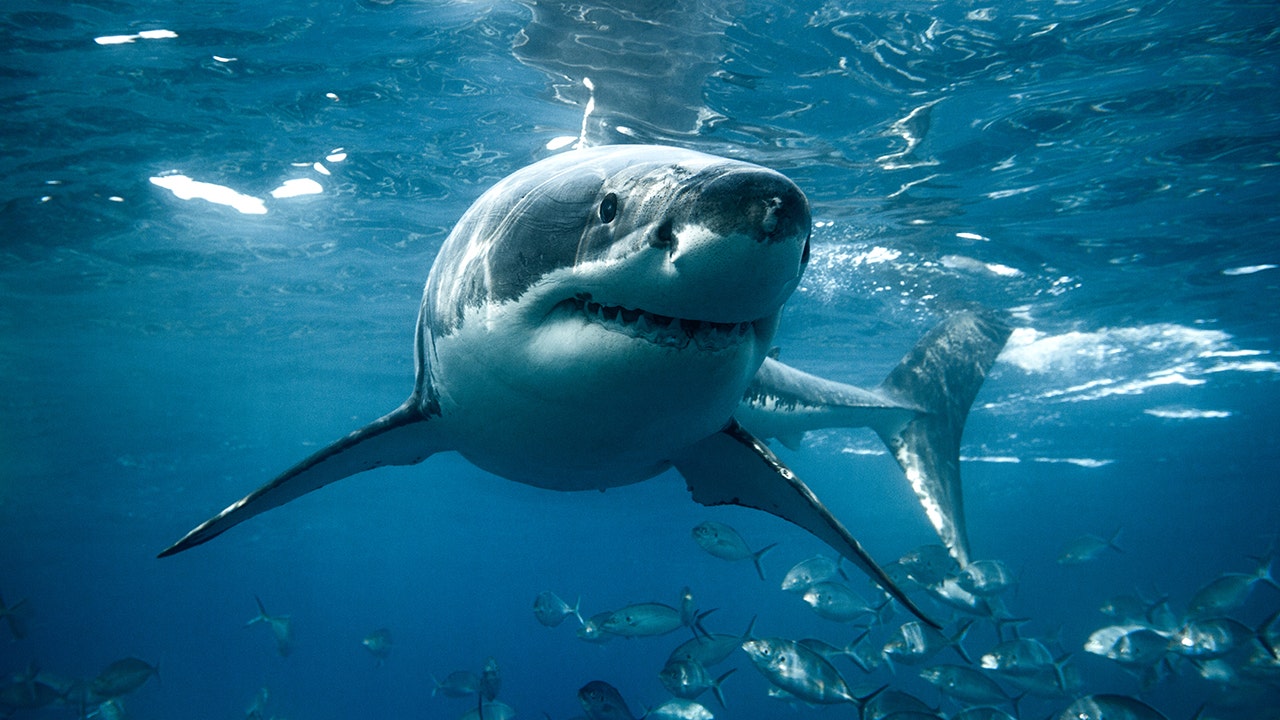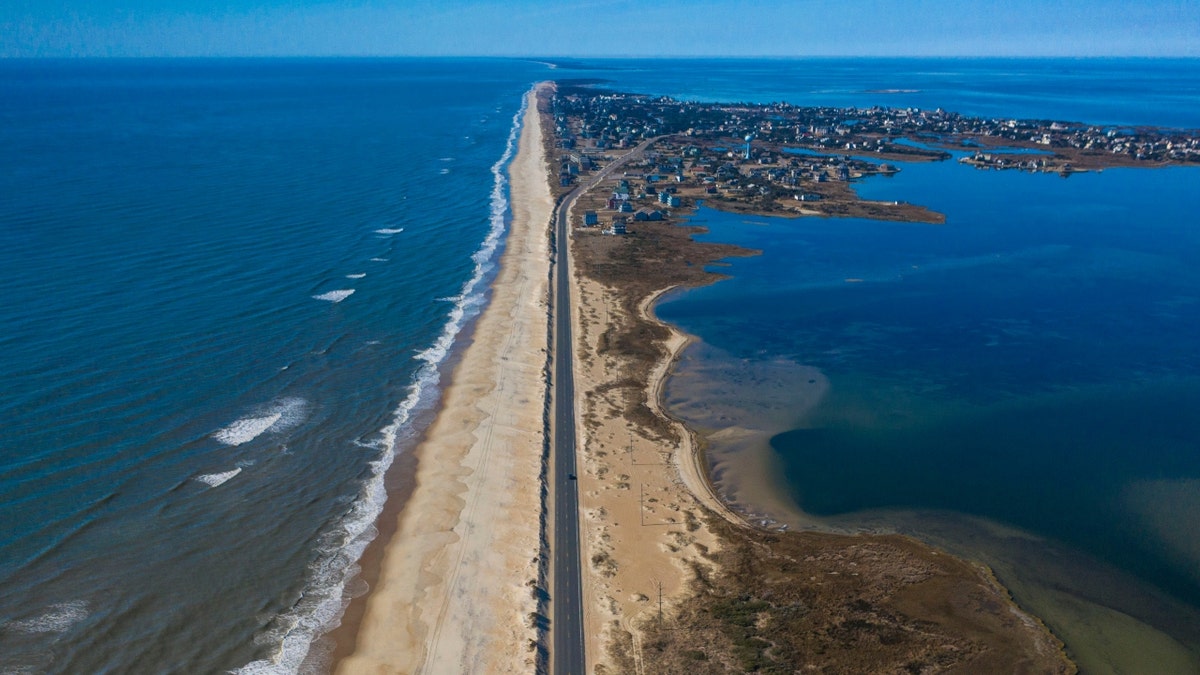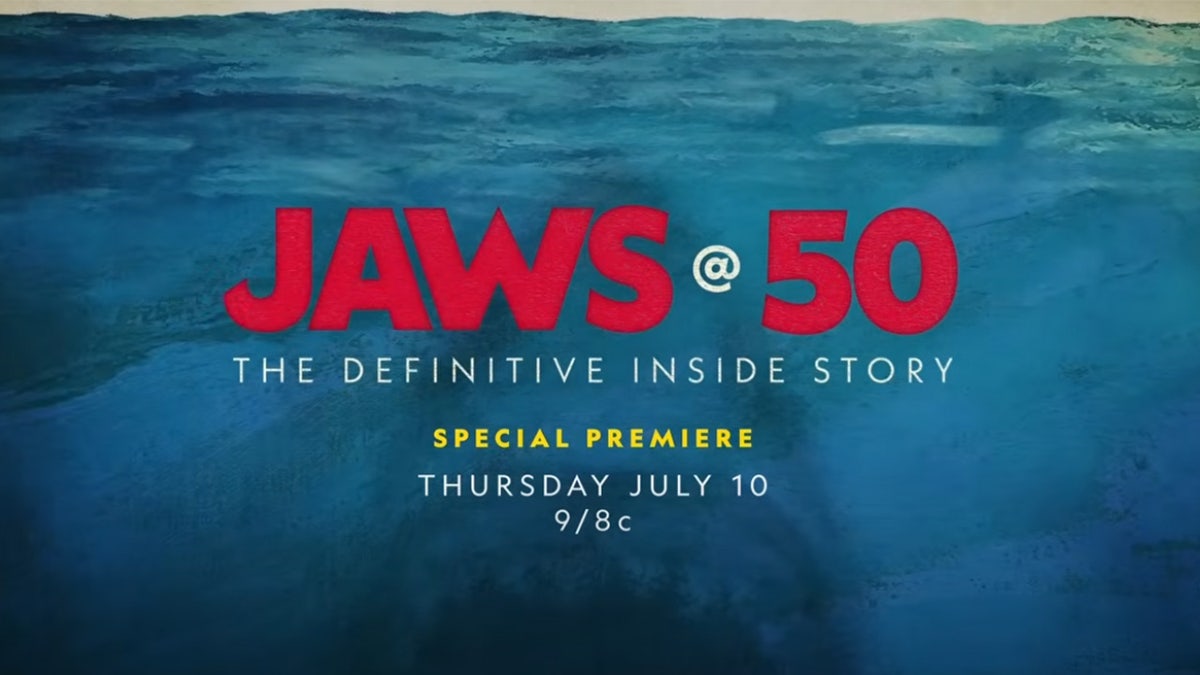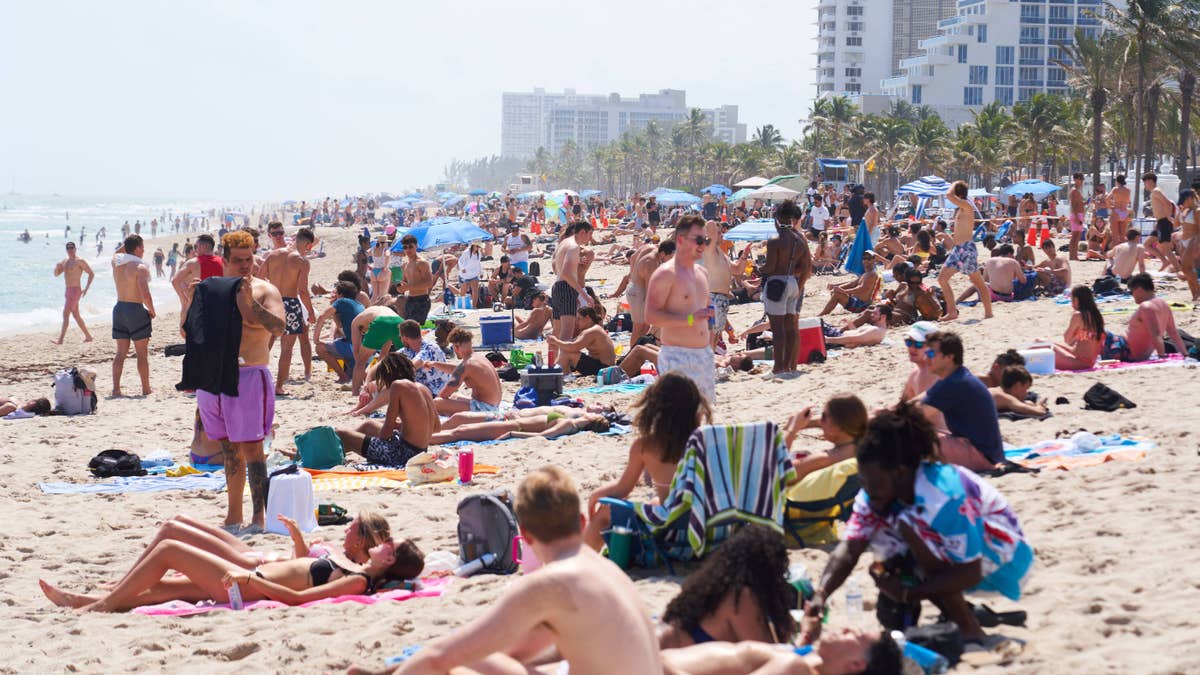
NEWYou can now listen to Fox News articles!
A wildlife biologist and “Shark Week” host says the ocean’s most feared predators must be respected, but family vacationers shouldn’t buy into the latest “hysteria” about summer attacks.
“This year happens to be the 50th anniversary of the movie ‘Jaws,’ which has created more hysteria and more mass fear for sharks than anything else,” Forrest Galante told Fox News Digital this week. “So much so that Steven Spielberg himself says that he regrets making the film.”
Increased fear could also be a product of scientific advances that have allowed biologists to more closely track sharks.
Dold, an 11-foot, 761-pound great white shark, is being tracked by researchers as he makes his way down the Florida coast. (OCEARCH)
SERENE SOUTHERN VACATION TOWN REPORTS 2ND SHARK ATTACK OF SUMMER AMID HEAVY TOURIST TRAFFIC
For example, the largest adult male great white shark ever recorded in the Atlantic Ocean was recently tracked off the coast of Cape Hatteras, North Carolina, a popular beach vacation hot spot, causing alarm.
“Contender,” as the shark has been named, is nearly 14 feet long and weighs an estimated 1,653 pounds. Scientists believe the shark is 32 years old.
“Now, this animal has likely been doing this every year since it was born, but all of a sudden, now that we have a satellite tag on it, we’re seeing that it’s in these waters where we’re not expectant of it to be there,” Galante said.
“So, it creates these alarm bells and it creates this sort of bit of chaos and panic. But the truth is that shark has probably swum that route hundreds of times, and we just didn’t know about it until recently.”

A drone aerial view of Outer Banks Highway 12, with the Atlantic Ocean on the left and the sound on the right, along the Cape Hatteras National Seashore. (Visions of America/Joseph Sohm/UCG/Universal Images Group via Getty Images)
TWO SHARK ATTACKS REPORTED IN SEPARATE VACATION HOT SPOTS AS SUMMER BEACH SEASON STARTS
While most sharks remain untagged and swim in every saltwater body, Galante explained that they never intentionally prey on humans.
“Now, a lot of people fear them, and they see them as mindless killing machines, but the truth is, these are just animals that sit at the top of the food chain,” he said. “And any time that we enter into the water, we’re entering into their domain. So, when there is a shark attack or a shark bite, that is simply because we have gone into a habitat where we as human beings don’t really belong, and we’re not the apex predator.”
Education plays a key role in ensuring that those enjoying summer fun in the sun don’t become victims.
To that end, Galante offered some do’s and don’ts.

The new documentary “Jaws @ 50” will premiere July 10 at 9/8c on National Geographic and on Disney+ and Hulu the next day. (National Geographic/YouTube channel)
BEACHES WITH MOST SHARK ATTACKS AS AMERICANS PAY TRIBUTE TO ‘JAWS’ AND ACTIVIST WEIGHS IN
Being extra careful when swimming in the ocean at dawn and dusk is crucial, he said. So is avoiding areas like estuaries, which are natural fish nurseries, and any area that has a lot of fish or bird life or a lot of seals or sea lions.
Those are called “marine-rich environments” and are often found at river mouths, he noted. That’s where sharks prey naturally, and humans swimming there could get caught in the mix.
Galante also mentioned more specific actions that could attract sharks.
“One thing that a lot of people don’t think of is not wearing shiny jewelry, because that flash can simulate a bait fish,” he said. “The crunching of a beer can or a water bottle actually nearly perfectly simulates the crunching of fish bones. So these little things that we do inadvertently can actually lead to a higher likelihood of a negative encounter with sharks.”

Beachgoers crowd onto Miami Beach, Fla. (US Sun/Mega)
The bottom line for beach vacationers is to do a bit of homework about their destination before they arrive.
CLICK HERE TO GET THE FOX NEWS APP
“If you do that little bit of reading — and I mean the same amount of time you’ll be scrolling Instagram — that few minutes of reading, you’re gonna end up minimizing your risks so substantially that, personally, I wouldn’t even worry about sharks.”
